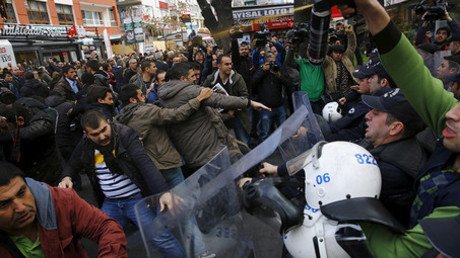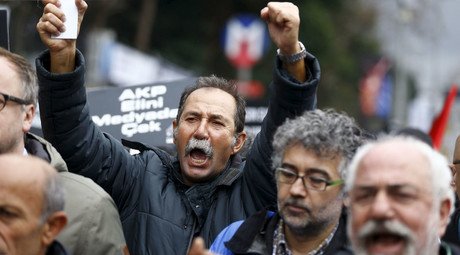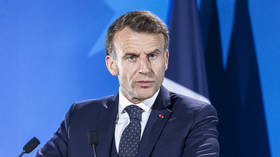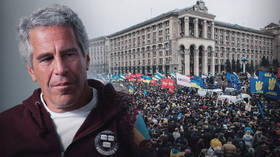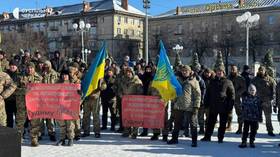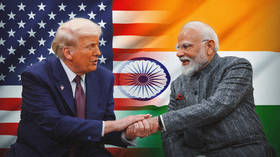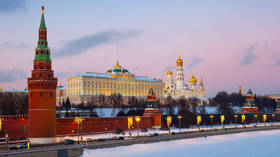Turkey detains & deports Russian journalists investigating ISIS oil trade reports
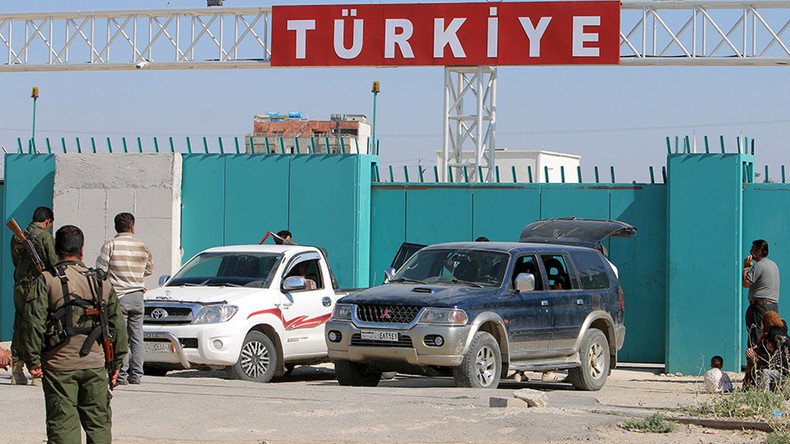
Russian journalists preparing an investigative report into Ankara’s alleged involvement in the oil trade with ISIS have been detained and deported from Turkey. Moscow strongly condemned the treatment of the Rossiya 1 TV crew, demanding explanations.
“We strongly condemn the illegal actions of the Turkish authorities,” the Russian Foreign Ministry said. “Such an attitude towards the media is absolutely unacceptable.”
On Monday, the press crew of the TV program ‘Special Correspondent’, headed by Alexander Buzaladze, were detained in southeastern Turkey by authorities in civilian clothes. The journalists were preparing an investigative report into the alleged smuggling of Islamic State (IS, formerly ISIS/ISIL) oil into Turkey.
READ MORE: ISIS smuggles majority of oil through Turkey, says Iraqi PM
The trouble for the Rossiya 1 TV crew started only once they arrived at the border, Buzaladze said after the deportation. He told Russian state-owned channel Vesti that while the crew worked in Istanbul and Ankara they had faced no opposition from the authorities.
But as soon as they and tried to film close to the Turkish-Syrian border the crew was “blocked [by] the Turkish security forces” leaving them no time to even “get the camera out.”
The Russian crew was arrested in Hatay province bordering Syria as they were on their way to the neighboring province of Gaziantep. According to Buzaladze, there the journalists wanted to film “the border itself, military hardware, people that work at the border, and the border crossing.”
Turkish authorities were first of all concerned “whether we had a camera,” Buzaladze says.
“The first thing they wanted to know [was] if we had a camera. The camera was left in the luggage compartment, locked in a case. Despite this, they took our documents, we were taken to the police station, later we photographed, fingerprinted, brought to the doctor for a medical examination to confirm that we are in a sane state, and that we are alive and well,” the journalist said.
The crew was later informed by the Turkish side that they were being deported. At the same time, authorities failed to explain the reason behind their move, Buzaladedze notes. The Russian journalists were escorted by police to the airport and put on a plane back to Russia.
Map, images from Russian military show main routes of ISIS oil smuggling to Turkey https://t.co/3g1MQxzfNFpic.twitter.com/LSlBFUlgqc
— RT (@RT_com) December 2, 2015Throughout the entire incident the Turkish authorities refused to cooperate with Russian diplomats on the ground. The Russian Foreign Ministry wants to know the real reasons behind the detention of the Rossiya 1 crew, and remains curious as to what “rules” were violated by the Russian journalists.
“The Turkish authorities refused to give explanations to representatives of the Russian Embassy in Turkey who got in touch with the crew shortly after its detention,” the Russian Foreign Ministry said. The group was deported apparently under the pretext of its members having violated laws for foreign journalists working in Turkey.
The lack of a clear explanation, forces the Ministry to speculate that the journalistic investigation might have uncovered something which Turkey would rather not share with the world in light of Turkish-Russian tensions following the shooting down of the Russian Su-24 bomber last month.
“One gets the impression that Ankara is scared that correspondents of the Rossiya 1 TV channel may throw a spotlight on facts about the illegal activities carried out in the Turkish-Syrian border area [that] the Turkish government would prefer to keep in the shadow[s],” the Russian Foreign Ministry said.
According to Rossiya 1 TV channel, the journalists arrived in Turkey on an assignment “to make a package on what is actually happening on the border between Turkey and Syria, and to clarify the situation with the traffic across the border of militants and illegal oil tank trucks.”
The scandal over alleged oil profiteering on the part of Turkey follows the downing of the Russian Su-24 bomber by Turkey in Syrian airspace amid the ongoing campaign against ISIS oil infrastructure on the Syria-Turkey border. Russian President Vladimir Putin described the act as “a stab in the back” by terrorist supporters and accused Turkey of involvement in the illegal oil deals with IS.
‘Oxygen for jihadists’: #ISIS-smuggled oil flows through Turkey to intl markets – Iraqi MP https://t.co/k9dsXWnVDLpic.twitter.com/cSYWukNHMy
— RT (@RT_com) November 29, 2015Meanwhile, the Russian Foreign Ministry commissioner for human rights, Konstantin Dolgov, said via Twitter that the latest incident shows that the Turkish authorities are ignoring international obligations with respect to the protection of journalists. Dolgov also called for international condemnation of the incident, including by the OSCE.
READ MORE: Turkey boosts arms supplies to Syria terrorists in exchange for oil & antiques – Damascus
Overall, the latest incident, according to the ministry, is just part of the ongoing trend by the Turkish authorities to crack down on freedom of speech in the country.
LISTEN MORE:
“The international organizations, including the OSCE, have repeatedly drawn [the] attention of the world public to this. In this regard, the detention of the editor-in-chief of the Turkish daily newspaper Cumhuriyet Can Dundar and the newspaper’s Ankara bureau chief Erdem Gul in late November over a report about the involvement of the Turkish intelligence agencies in the supplies of weapons to militants in Syria is indicative in this respect,” the Russian Foreign Ministry said. “The journalists were charged with ‘espionage, disclosure of state secrets and terrorism.’ They are facing life in prison.”
Downed #Su24’s black box to reveal truth about #Turkey’s treacherous strike – Putin https://t.co/QxEEHX6qKppic.twitter.com/G9VLlDimSO
— RT (@RT_com) December 8, 2015